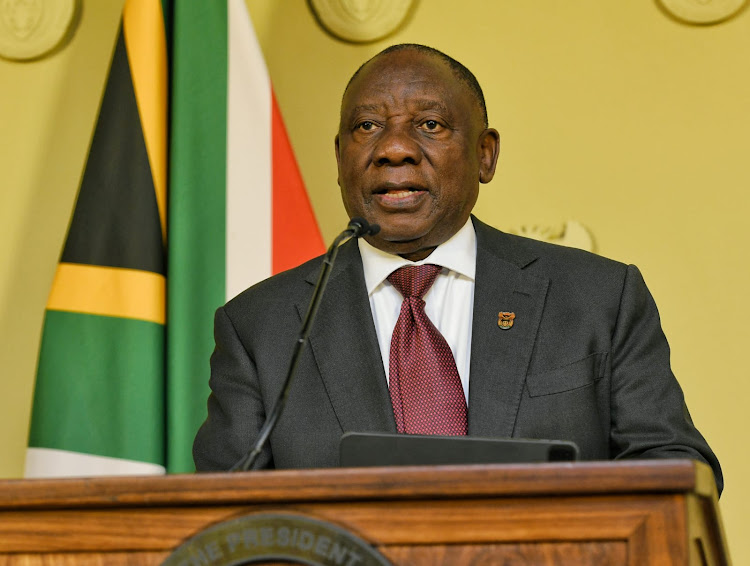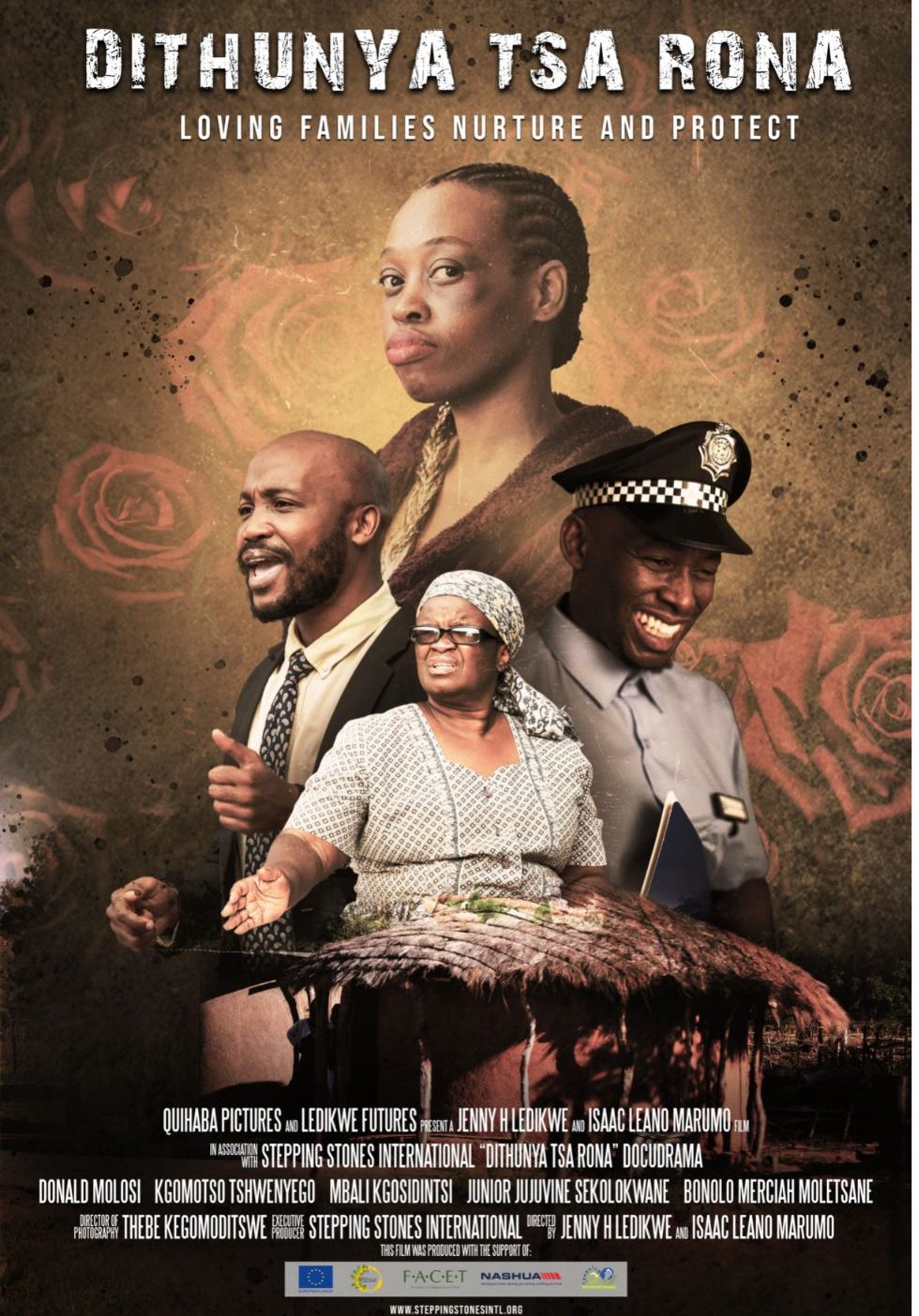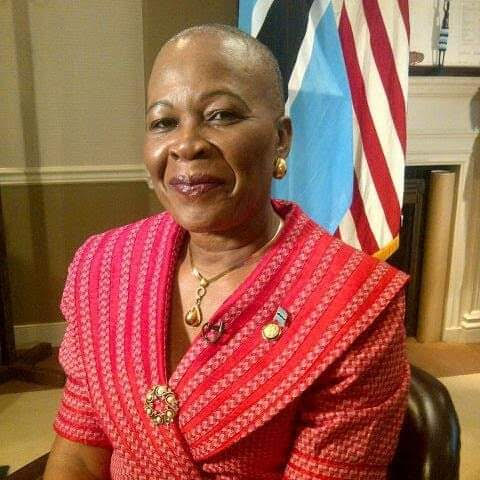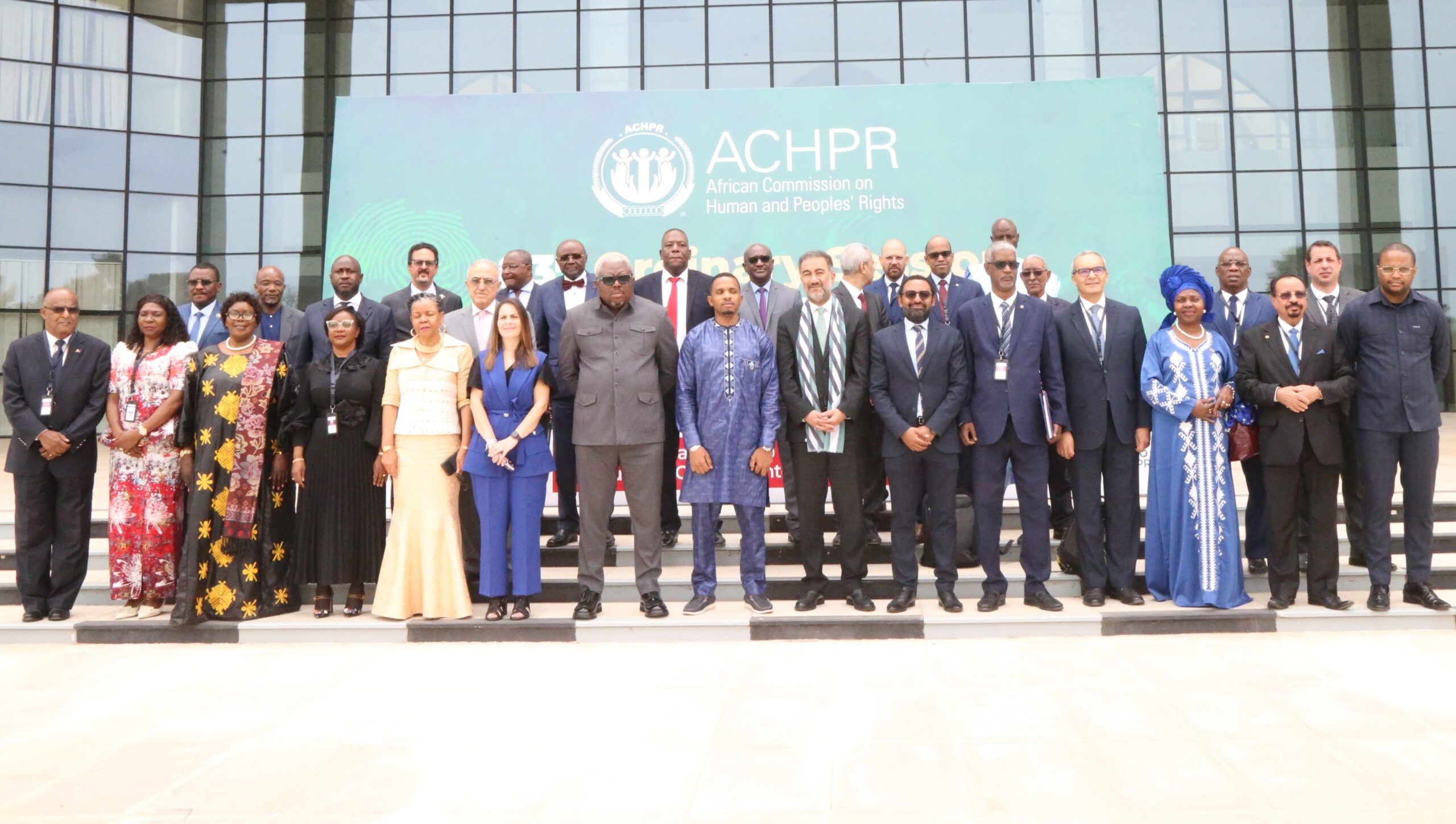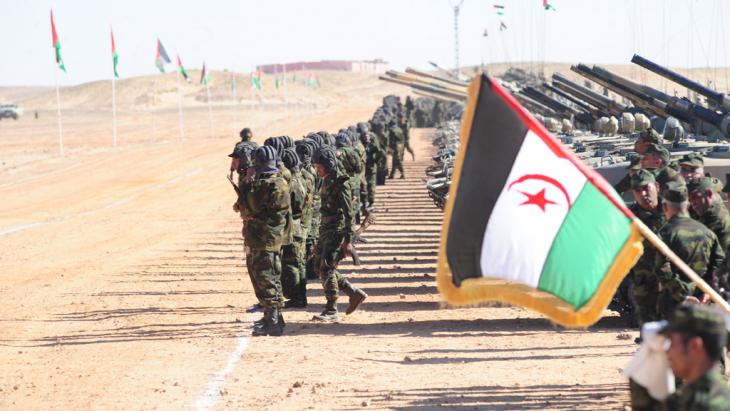
Polisario troops in a parade
Polisario Front strongly criticised Security Council’s “inaction” regarding Moroccan perpetuated violation of Saharawi people’s rights to freedom and full independence, after a closed videoconference (VTC) consultations on Western Sahara organised Wednesday 21st April, in which members of the Council were briefed by Acting Assistant-Secretary-General for Africa Michael Kingsley-Nyinah and Special Representative and head of the UN Mission for the Referendum on Western Sahara (MINURSO) Colin Stewart.
The meeting failed to adopt a final declaration proposed by the USA, as it is the custom in such briefings, and individual member states of the Council expressed their position regarding the issue afterwards in separate statements.
Nonetheless, Polisario Front, the liberation movement representing the people of Western Sahara, issued a strong press release criticising Security Council inaction, considering that this attitude “undermines prospects of peaceful solution and leaves the door open to escalation of the on-going war.”

“Given the gravity of the current situation, it is regrettable that the Security Council has missed another opportunity to set the record straight and hold the Moroccan occupying state fully accountable for the serious consequences of its documented breach of the 1991 ceasefire and Military Agreement no. 1 carried out on 13 November 2020 as well as its new act of aggression on the Sahrawi Liberated Territory,” the press release reads.
The text further considered that the Security Council “has also failed to address the alarmingly deteriorating situation in the occupied Western Sahara where the Moroccan occupying authorities persist in their attempts to forcibly impose a fait accompli in the Territory while intensifying their repressive and retaliatory practices against Sahrawi civilians before the very eyes of MINURSO.”
In this context, Polisario Front criticised the “failure of the Security Council to take concrete actions to confront the serious consequences of Morocco’s breach of the 1991 ceasefire and its new aggression on the Sahrawi Liberated Territory as well as its unlawful actions in the occupied Western Sahara”, considering that this UN’s inaction “not only undermines the prospects of re-launching the peace process but also leaves the door wide open to the escalation of the on-going war.”
Therefore, this African liberation movement affirmed that “the Sahrawi people are left with no option but to exercise their legitimate right to self-defence and to carry on their liberation struggle to defend their sovereignty and to fulfil their national aspirations for freedom and independence,” to legitimately “face of Morocco’s ongoing act of aggression and the inaction of the United Nations.”
Nonetheless POLISARIO also affirmed remaining “committed to cooperating with the efforts of the African Union and the United Nations with a view to achieving a peaceful, just, and lasting solution to the decolonisation of Western Sahara based on the free and democratic exercise by the Sahrawi people of their inalienable and non-negotiable right to self-determination and independence.”
In this regard, the Front underscored that the appointment of a new Personal Envoy for the UN Secretary-General for Western Sahara “is not an end in itself,” stressing that “It is just a means to facilitate a robust and time-bound peace process leading to the free and democratic exercise by the Sahrawi people of their inalienable right to self-determination and independence.”
“To this end, the Frente POLISARIO further underlines that impartiality, independence, competence, and integrity are indispensable prerequisites for any future PESG to restore confidence in the peace process and to succeed in his or her mission,” the text concluded.
It should be recalled here that members of the Security Council had voiced criticism to the way some of the permanent members are dealing with the question of western Sahara, mainly France and a so-called “Group of the Friends of the SG on Western Sahara”, which controls the drafting of all resolutions on this conflict and imposes its will on other non-permanent members.
Russia, China, South Africa, Ethiopia, and various other non-permanent members have previously voiced rejection of such non-consultative methods adopted by this group, (which is composed of the USA, France, UK, Spain and Russia,) and requested a more inclusive consultative mechanism for the drafting and adoption of resolutions on Western Sahara.
On another hand, the USA used to be the Pen-Holder in charge of drafting resolutions on this issues, but since last December 10th, former President Trump recognised the Moroccan illegal occupation of the territory, and that way the US lost the needed neutrality to keep such pivotal role that requires impartiality and neutrality.
Many countries and international organisations criticised this American move, and considered it contrary to the international legality, calling for the Biden Administration to reverse course. Yet, the new administration still didn’t voice a final stand.






